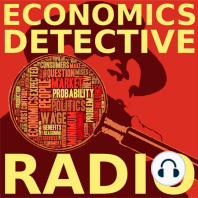44 min listen

Indian Constitutional Political Economy and the Bhopal Gas Tragedy with Shruti Rajagopalan
Indian Constitutional Political Economy and the Bhopal Gas Tragedy with Shruti Rajagopalan
ratings:
Length:
57 minutes
Released:
Jan 5, 2018
Format:
Podcast episode
Description
My guest on this episode is Shruti Rajagopalan of the State University of New York's Purchase College. We discuss Shruti's work on constitutional political economy as it relates to India. We start by talking about the Indian constitution. India got its independence in 1947 and ratified a constitution shortly after in 1949. Interestingly, it is the most amended constitution in the world. Shruti argues "that the formal institutions of socialist planning were fundamentally incompatible with the constraints imposed by the Indian Constitution." We go on to discuss Shruti's work on the Bhopal gas tragedy, which demonstrates some of the failings of India's institutions. The Bhopal gas tragedy was a man-made disaster in 1984 where mishandling of dangerous chemicals by the company Union Carbide resulted in thousands of deaths and hundreds of thousands of non-fatal injuries among the public. The Indian government mismanaged the legal cases against Union Carbide, resulting in no payout to the people affected by the disaster.
Released:
Jan 5, 2018
Format:
Podcast episode
Titles in the series (100)
The Bubble Films with Jimmy Morrison: Jimmy Morrison is an independent filmmaker who is currently directing two films: The Housing Bubble and The Bigger Bubble. The Housing Bubble deals with the history of business cycles in America, spanning from the First World War to the 2008 crash.... by Economics Detective Radio